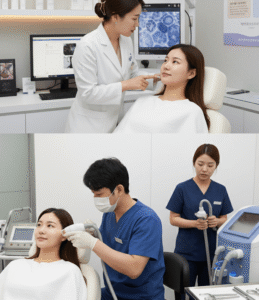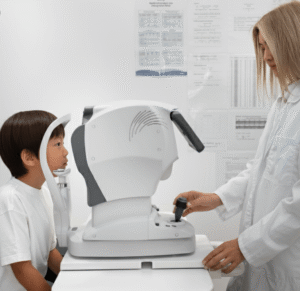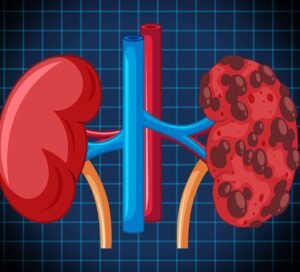Overview
Trichomoniasis is a common sexually transmitted infection (STI) caused by the protozoan parasite Trichomonas vaginalis. It affects both men and women, though women are more frequently symptomatic. While often mild or asymptomatic, trichomoniasis can lead to significant reproductive health issues if left untreated, including increased susceptibility to other STIs, pelvic inflammatory disease, and pregnancy complications. South Korea provides advanced diagnostic testing, effective pharmacological treatments, and public health programs to manage and prevent trichomoniasis, ensuring early intervention and reducing the risk of long-term complications.
What is Trichomoniasis?
Trichomoniasis is an infection of the urogenital tract caused by Trichomonas vaginalis, a motile protozoan parasite. In women, it typically affects the vagina and urethra, while in men, the urethra is primarily involved. Transmission occurs predominantly through sexual contact, including vaginal intercourse. Trichomoniasis can be asymptomatic, particularly in men, but it can persist for months or years if untreated. The parasite can trigger inflammation of the genital mucosa, resulting in discomfort, discharge, and other urogenital symptoms. South Korean healthcare facilities offer rapid antigen testing, nucleic acid amplification tests (NAAT), and microscopy to accurately diagnose infection and guide effective treatment.
Symptoms
Symptoms of trichomoniasis can vary between individuals and may be subtle:
- Women: Vaginal discharge that is frothy, yellow-green, or malodorous; vulvar itching or irritation; dysuria; pelvic discomfort
- Men: Often asymptomatic, but may experience urethral discharge, burning during urination, or mild irritation
- Both sexes: Some patients may experience lower abdominal discomfort, mild urinary frequency, or irritation of genital tissues
- Asymptomatic cases: Many individuals, particularly men, may carry and transmit the parasite without noticeable symptoms
- Complications during pregnancy: Preterm labor, low birth weight, or increased risk of neonatal infection
Early detection through screening in Korea is critical to prevent transmission and complications.
Causes
Trichomoniasis is caused by the Trichomonas vaginalis parasite and transmitted primarily via sexual contact:
- Vaginal intercourse with an infected partner
- Rarely, through fomites such as contaminated towels or clothing
- Persistence in the urogenital tract due to inadequate treatment or untreated partners
The parasite adheres to epithelial cells of the urogenital tract, causing inflammation, cell damage, and discomfort.
Risk Factors
Certain factors increase the risk of acquiring trichomoniasis:
- Multiple sexual partners or unprotected sexual activity
- History of other sexually transmitted infections
- Women are at higher risk due to vaginal mucosa susceptibility
- Poor genital hygiene and limited access to healthcare
- Immunocompromised individuals, who may experience more severe or persistent infection
Awareness of risk factors in South Korea helps guide public health interventions and screening programs.
Complications
If left untreated, trichomoniasis can lead to several complications:
- Increased susceptibility to HIV and other STIs due to mucosal inflammation
- Pelvic inflammatory disease (PID) in women, potentially affecting fertility
- Pregnancy complications: Premature delivery, low birth weight, and neonatal infection
- Recurrent or persistent infections: Especially when sexual partners are untreated
- Genital discomfort and chronic inflammation: Affecting quality of life and sexual health
Prompt diagnosis and treatment in Korean clinics minimize these risks and improve reproductive health outcomes.
Prevention
Preventing trichomoniasis focuses on safe sexual practices, hygiene, and early detection:
- Consistent and correct use of condoms during sexual activity
- Limiting the number of sexual partners and maintaining mutual monogamy
- Regular STI screening for sexually active individuals
- Avoiding sharing personal items such as towels or underwear
- Prompt treatment of infected individuals and their partners to prevent reinfection
- Public education campaigns to raise awareness about symptoms and transmission
Korean public health programs emphasize education, screening, and partner management to reduce the incidence of trichomoniasis.
Treatment Options in Korea
South Korea provides effective pharmacological and supportive care for trichomoniasis through specialized clinics and hospitals:
Diagnosis:
- Microscopy of vaginal or urethral secretions to detect the parasite
- Rapid antigen tests or nucleic acid amplification tests (NAAT) for higher accuracy
- Screening for coexisting STIs, particularly HIV and chlamydia
- Evaluation of sexual partners to prevent reinfection
Medical Treatments:
- Metronidazole: First-line therapy, administered orally in a single dose or over several days
- Tinidazole: Alternative for patients who cannot tolerate metronidazole or require repeated treatment
- Partner treatment: Essential to prevent reinfection and break the transmission cycle
- Follow-up testing: Recommended for symptomatic individuals or high-risk patients to ensure clearance of the parasite
Rehabilitation and Support:
- Education on safe sexual practices and infection prevention
- Counseling for individuals with recurrent infections or concerns about sexual health
- Monitoring for complications in pregnant women to protect maternal and neonatal health
- Integration of STI prevention programs within public health and reproductive health services
Korean healthcare providers combine accurate diagnosis, effective treatment, partner management, and public health education to manage trichomoniasis efficiently and prevent its spread.













